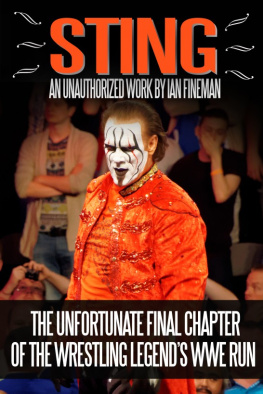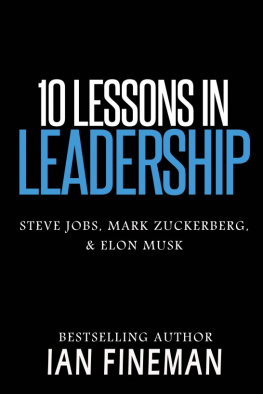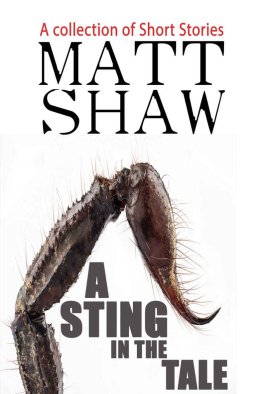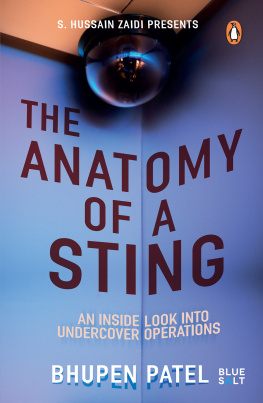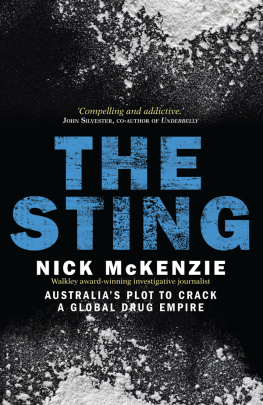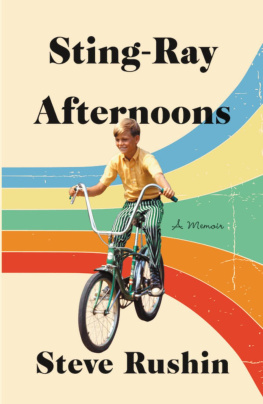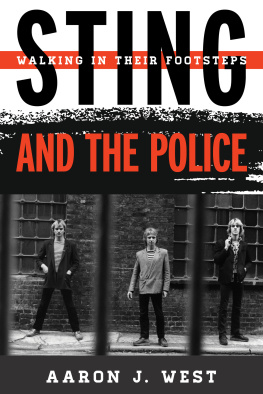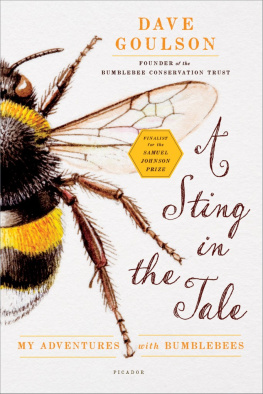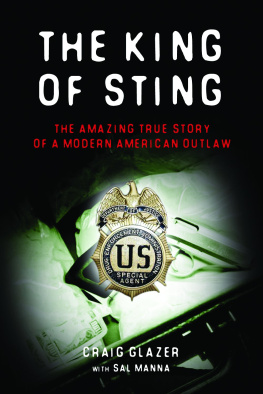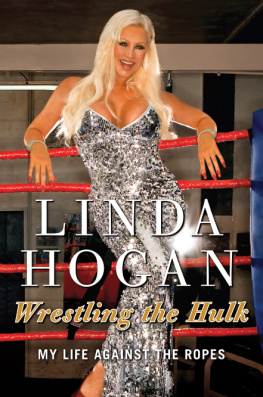Sting: The Unfortunate Final Chapter of theWrestling Legends WWE Run
Ian Fineman
Disclaimer
Published by SportsEntertainment Publishing at Smashwords.
Copyright 2016 by SportsEntertainment Publishing. All Rights Reserved worldwide. May not becopied or distributed without prior written permission from theauthor.
This eBook is not anofficial WWE, TNA, or Sting (Steve Borden) publication nor is itassociated, affiliated, or otherwise endorsed by WWE, TNA, Steve orSteve Borden. To visit WWE.com, clickhere . To visit TNA, click here .
All information contained inthis eBook has been obtained by exclusive interviews, onlineresearch, and information freely available in the publicdomain.
This eBook providesinformation that you read and use at your own risk.
Cover image is available( withattribution ) royalty free andfor commercial use by Miguel Discart on Flickr .
Stingers Splash
In 2015, the world ofprofessional wrestling witnessed something it never expected tobehold Sting headlining a WrestleMania pay-per-view.
For years for decades, infact WWE fans wanted nothing more than to see the WCW and TNAlegend finally set foot into a WWE ring.
But by the end of 2015, theunthinkable would be said by many of these same fans they wishedhe had never come to WWE after all.
Stings long awaited run inthe WWE was the biggest disappointment of his career, in myopinion, says wrestling fan Jeff Eckhart.
By Ric Flairs ownadmission, if Sting has been with the WWE in the 1980s there mayhave never been a Hulk Hogan due to the fact that Sting was sotalented, charismatic, and popular with fans.
We always wanted to seeSting end his career in WWE, but not like this, Eckhart says,stopping short of blaming Sting for what happened. WWE should beashamed of itself for the way they booked this man and how theyscrewed the fans. Isnt it something? Maybe Sting should havecontinued to trust his gut all these years. He always suspectedthat WWE was a place he couldnt trust. Maybe he shouldnt havechanged that view.
Subtle murmurs of regretfirst began to emerge after Stings program with Triple H atWrestleMania in 2015 an event that only reserved to affirm howThe Game and his ego were too big to put over the man thatcountless adult fans had wanted to see in the WWE since they werekids watching pro wrestling on Saturday mornings in their parentsliving room.
Even WWE legend Scott Hallseemed to agree that the outcome of Mania that year didnt exactlymake sense and reeked of personal politics.
I was there and obviouslyinvolved in his match at WrestleMania last year, Hall recalled ina subsequent interview. Were rehearsing the match in Cali lastyear at Levi Stadium, and its the Kliq and the New Age Outlaws outthere, and we all know each other. And then theres Sting, whodoesnt know anybody. Hes an outsider. I just think he never feltcomfortable there. Being hurt was answered prayer for him-just letit end.
So were all in thereagain, Hall continued, and Im next to Hulk on the ring apron andTriple H is going over the match and then he goes, OK, hell breakthe sledgehammer, then Ill hit him with the sledgehammer, andcover him, 1-2-3. I looked at Hulk, and Hulk looked at me, and Iwas thinking, Sting, what kind of lawyer do you have, bro? Yourecoming in the door doing a job? You werent even guaranteed to goover?'
That was the first time fansstarted seriously questioning whether or not Stings migration toWorld Wrestling Entertainment was a wise move.
The Beginning of the Icon
Steve Borden is a rarity inthe world of professional wrestling.
He is known throughout theworld as Sting - one of the biggest and most successful names inthe history of the business.
The humble grappler fromOmaha, Nebraska is, without question, nearly as recognizable as theBritish rocker and former Police front man who shares hismoniker.
He's won 24 championshipsacross multiple national promotions and is a 15-time worldheavyweight champion. He's held the NWA World HeavyweightChampionship twice, the WCW World Heavyweight Title six times andthe TNA World Heavyweight Championship four times.
He is the only wrestler inthe history of the business to hold the NWA, WCW and TNA WorldTitles.
Yet what remains both uniqueand amazing about the storied accomplishments of the athlete knownas Sting is that Steve Borden attained this lofty perch in sportsentertainment without having ever worked for the biggest company inwrestling and today's lone power in the business - Vince McMahon'sWWE.
For close to three decades,wrestling fans have anticipated Sting's eventual foray intoMcMahon's territory.
During that time, otheronce-impossible scenarios played out instead: WWE purchased WCW,Bret Hart and Shawn Michaels reconciled, and sports entertainmentemerged as a multi-billion-dollar industry that, in many aspects,is more popular - and more widely watched - than some mainstreamprofessional sports.
But through it all, one such"eventuality" never panned out. Sting never signed with WWE duringall of those years when such a deal was seeminglyinevitable.
Stings Ascension
By the late 1980's, Stingwas one of the biggest names in the world of professional wrestling- first on the independent circuit and later in World ChampionshipWrestling (WCW).
At the zenith of thecompany's popularity in the mid-1990's, Sting was one of theall-time highest paid performers in wrestling. And WCW's televisionprogramming was doing something few ever thought it could - it wastrouncing McMahon's WWE week after week in the epic Monday NightWars.
For Borden, the unparalleledheights he reached in the sport of kings were once unfathomable inhis youth.
Strong and athletic as ayoung man, Borden - like many of his peers in wrestling - wasintroduced to the industry accidentally, after first becominginterested in body building.
In 1985, Sting's wrestlingcareer was born when he became part of a stable of fourbodybuilders known as "Powerteam USA."
"They were trying to breakinto pro wrestling," Borden recalls of his former wrestlingcomrades who discovered him in a gym. "And they were looking for afourth guy. They tried to recruit for a couple of weeks, couldntcome up with anybody, and finally said, 'What aboutyou?'"
Together, the men weretrained by Rick Bassman. But of the four, only two stood out -Steve Borden and Jim Hellwig.
Hellwig, of course, wouldlater rise to international superstardom as "The Ultimate Warrior"in WWE.
In the mid-1980s Borden andHellwig decided to break from the bodybuilding faction and formtheir own tag team.
"I was going to chiropracticschool and competing in bodybuilding," Hellwig, now deceased, oncerecalled of his early days with Sting. "In 1984, I won the Mr.Georgia competition. From that, I went to the Mr. Americacompetition that year in New Orleans. And there, there was a guy bythe name of Ed Connors, who was one of three guys who bought theGolds Gym that Joe Gold founded, and the three set out and turnedinto the worldwide franchise operation that it is today. Everyyear, back at that time, in the 80s, they would take two amateurbodybuilders they thought had potential to make it big, and bringthe two out to California and put them up while they trained at'The Mecca' for a Junior National or National level contest. I wasone of the guys in 84 or 85. I went out there and I trained for aJunior Mr. USA contest, took fifth in my class, if I rememberright. Anyway, things didnt, in the contest, really go the way weexpected them to go. The opportunity was still there. I was likeone of the biggest, by bodyweight, bodybuilders at the time, gotgreat reviews with [Joe] Weider and all the other top bodybuilders,just didnt hit my mark for that show. So, I decided to get back toAtlanta and finish the small amount of school I had left, mostlyclinical requirements."

